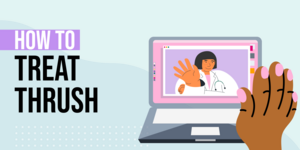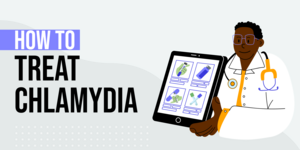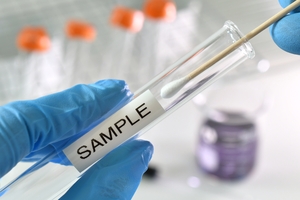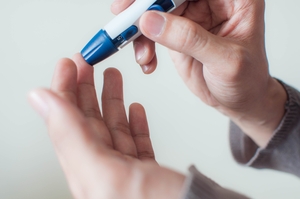A1C test near me
in University, MS
Own a clinic? Add your location.
Help patients book appointments with you on Solv. It's free!
1 instant-book location

Baptist Urgent Care, Batesville, MS
Baptist Urgent Care
Urgent Care Clinic of Oxford
Urgent Care Clinic of Oxford
MedPlus New Albany
MedPlus New Albany
RedMed Urgent Clinic
RedMed Urgent Clinic
Own a clinic? Add your location.
Help patients book appointments with you on Solv. It's free!
University A1C Testing
In the United States, one out of every ten people has diabetes, and one out of every three people has prediabetes. Diabetes is a chronic illness that affects your body's ability to convert food into energy. Blood glucose, sometimes known as sugar, is the body's primary source of energy. Your pancreas releases an insulin-like hormone when your blood sugar rises, which usually happens after you eat. Insulin facilitates glucose transfer into your cells, where it can be used for energy.
When you have diabetes, your body either does not produce enough insulin or does not respond to insulin as it should. This is known as insulin resistance. As a result, your blood sugar levels are too high, which can lead to serious health problems over time. Uncontrolled diabetes can cause nerve damage, kidney damage, eye damage, skin problems, and poor wound healing. Diabetes patients are more prone to hearing loss and depression. They're also at a higher risk of developing heart disease and dementia.
If you have diabetes or prediabetes, it's vital to monitor and manage your blood sugar levels. Testing for blood glucose should be done on a regular basis. A blood glucose test, on the other hand, only provides information on your blood sugar at a certain time. A1C testing should be done on a regular basis to acquire a more accurate picture of your average blood sugar levels throughout time. You should have an A1C test at least once a year if you have prediabetes. If you have diabetes, your doctor will likely suggest an A1C test every three months to ensure that your treatment is effective.
A1C Test FAQs
What is an A1C test?
An A1C test is a blood test measuring your average blood sugar level over the past two to three months. It’s often used to diagnose both type 1 and type 2 diabetes, and it can also be used to monitor how well treatment is working for people with diabetes. The test measures the percentage of hemoglobin proteins in the blood that are coated with sugar. The higher your A1C, the higher your risk of diabetes or complications related to diabetes.
How much do A1C tests cost in University?
A1C tests are relatively inexpensive and are often offered by pharmacies and walk-in clinics. Some facilities may offer A1C tests for $30 or less. If you have health insurance, you may not have to pay anything for an A1C test.
Does insurance cover A1C testing in University?
Insurance will often cover the cost of A1C testing. However, there may be some limitations. For example, they may cover the cost of the test only if you are diagnosed with type 1 or type 2 diabetes after the test. Or, the test may be covered only once every three months. To find out exactly what is covered under your insurance plan, call your insurance company or check your plan benefits on their website.
Where should I get an A1C test in University?
A1C tests are available at doctor’s offices, health clinics, urgent care facilities, and many pharmacies. Some clinics and pharmacies may offer walk-in A1C tests, but it’s a good idea to make an appointment to reduce your wait time. It’s also best to get your A1C test from a healthcare provider who can prescribe any necessary medications or help you develop a treatment plan if you are diagnosed with diabetes.
How long does it take to get A1C test results in University?
Depending on where you have the test, your results may be available immediately, or they may take up to a week. Some doctor’s offices can run the test results at their facility and give you your results in the same appointment. However, if your blood is sent to a lab for analysis, it may take a few days to a week to receive your results.
How do A1C tests work?
A1C tests look at the hemoglobin in your blood. Hemoglobin is a type of protein that carries oxygen throughout your body. When you have glucose in your bloodstream, it can stick to the hemoglobin. Once glucose is attached to the hemoglobin, it tends to stay there for the lifespan of the hemoglobin, which is around 120 days. The A1C test measures the percentage of hemoglobin in your blood that is glycated, meaning that it has glucose attached to it.
What is hemoglobin A1C in a blood test?
Hemoglobin A1C is the percentage of glycated hemoglobin in your blood. A normal A1C level is 5.7% or below. An A1C level of 5.7% to 6.4% indicates prediabetes, which means your blood sugar is higher than it should be but not high enough for a diabetes diagnosis. An A1C level of 6.5% or above indicates diabetes.
Do I need to see a University doctor before getting an A1C test?
You do not need to see a doctor prior to getting an A1C test. The A1C test is a simple blood test that only takes a few minutes. There’s no requirement to fast before the test or do anything else to prepare.
How can I book an A1C test on Solv?
Booking an A1C test on Solv is quick and easy. Simply enter “A1C test” into the search box on our website. You can use your current location or enter a different location. Then click the search button. You will be given a list of providers near you and available appointment times. Choose a time and location and enter your information to book your appointment.
Should I try at home A1C testing?
There are A1C tests available for home use, which are generally found to be accurate. A1C home test kits require collecting a sample of blood yourself. If you are accustomed to testing your blood glucose levels, the process is similar. However, if you have not been diagnosed with diabetes or prediabetes, you may want to schedule your A1C test with a healthcare provider who can prescribe any necessary medication and help you develop a treatment plan if you need it.

Updated on Jan 25, 2025
Solv has strict sourcing guidelines and relies on peer-reviewed studies, academic research institutions, and medical associations. We avoid using tertiary references.
Related searches
DOT Exam in University
Ear Wax Removal in University
Physical Exam in University
Sports Physicals in University
A1C Test in University
Allergy Testing in University
Basic Metabolic Panel in University
CMP Test in University
COVID-19 Antibody Test in University
Diabetes Test in University
Diagnostic Test in University
Glucose Test in University
H Pylori Test in University
Hepatitis test in University
Mono Test in University
Pregnancy Test in University
RSV Test in University
STD Testing in University
Strep Test in University
TB Test in University
Thyroid Test in University
Vitamin D Test in University
Find lab tests
Nearby cities
Everyday Healthcare, Simplified
Expert advice to help you live your best life









